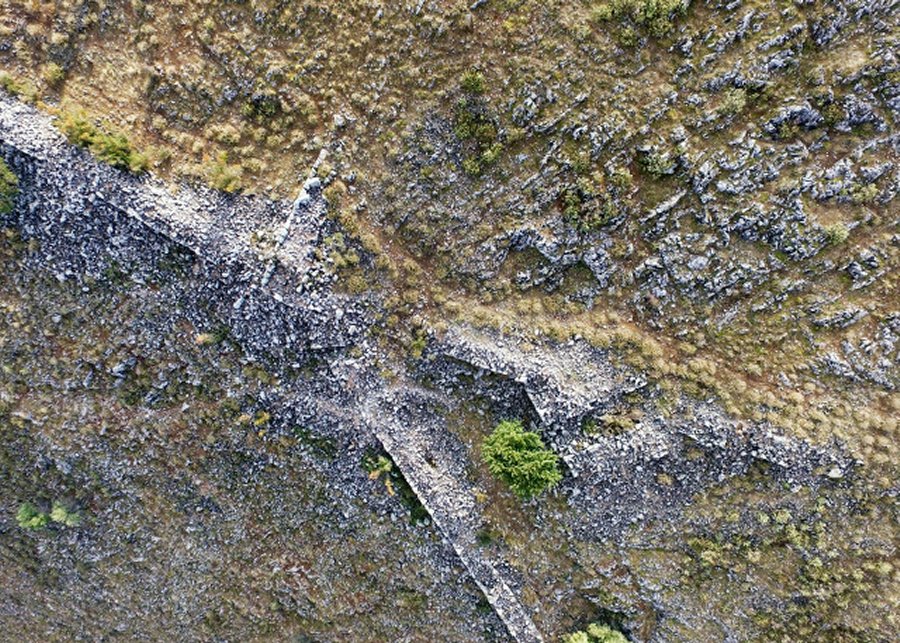MessageToEagle.com – A team of archaeologists from University of Gothenburg, Sweden and University of Bournemouth, United Kingdom have stumbled upon the previously unknown 2,500-year-old city located near the Strongilovoúni hill, at the village of Vlochós, north of Athens, Greece.
Some of the ruins are previously known, but have until now been dismissed as the remains of a small, irrelevant settlement, according to Robin Rönnlund, the head of the group.

“It feels great. I think it is [an] incredibly big [deal], because it’s something thought to be a small village that turns out to be a city, with a structured network of streets and a square,” Rönnlund said.
The area inside the city wall measures over 40 hectares.
See also:
Mysterious Sophisticated Mycenaean Civilization: Untouched Ancient Tomb Found In Amfissa, Greece
Huge Greek 2,500-Year-Old Naval Base Discovered In Piraeus, The Harbor City Of Athens
Mystery Of The ‘Griffin Warrior’ Grave: Ancient Greek Lord Of The Rings Discovery
The discovery was made rather accidentally, while researchers were working with another project and interesting is that nobody has explored the Strongilovoúni hill earlier.
Ancient pottery and coins have been unearthed and date back to around 500 BC; after that period, the ancient city is believed to have flourished from the fourth to third century BC, before it was abandoned – possibly when the Romans conquered the area.
Excavations have also revealed remains of walls, city gates and towers.
In August next year, the team will use ground-penetrating radar to find out what is hidden beneath the surface.
“Very little is known about ancient cities in the region, and many researchers have previously believed that western Thessaly was somewhat of a backwater during Antiquity. Our project therefore fills an important gap in the knowledge about the area and shows that a lot remains to be discovered in the Greek soil,” said Rönnlund in the statement published by Gothenburg University.
MessageToEagle.com
Expand for referencesReferences:






